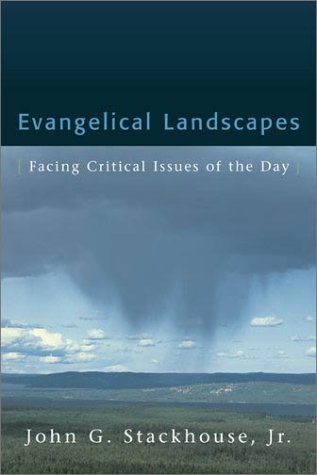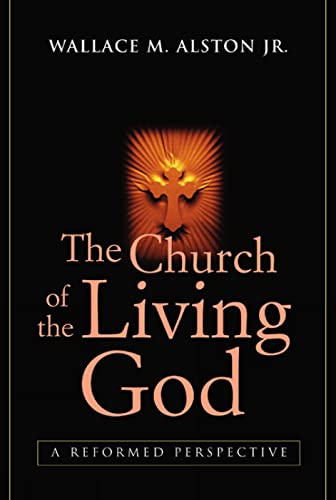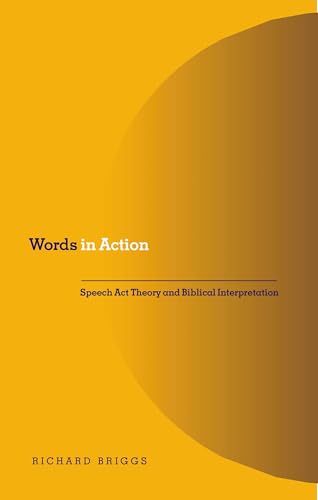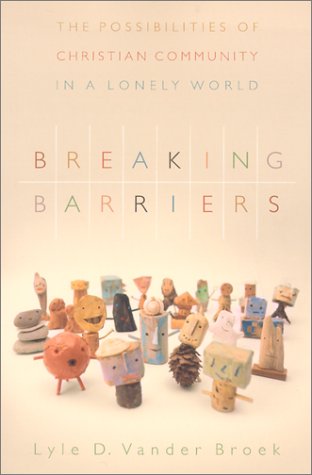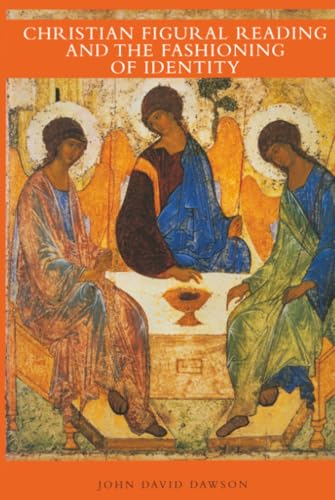Volume 29 - Issue 2
Why You Shouldn’t Buy The Big Issue
By Carl TruemanBy the time this edition of Themelios comes out the noise and drama of the debate over homosexuality in the Anglican church will probably have died down somewhat-though we can be certain that this will only be a temporary full. The issue is not set to disappear any time soon; and the passions which run deep on both side of the debate are unlikely to abate over time. Indeed for many in the church, it is without doubt the Big issue of our time.
The whole thing is, of course, a gift to the media. A Christian denomination openly divided against itself; endless TV appearance of awkward-looking men in ridiculously outdated outfits that make your elderly grandparents look like cutting-edge fashionistas; and the interminable waffle and meaningless jargon which seems to serve no purpose other than to cloud the basic points at issue, All of this helps the men and women who bring us the news to portray the church a irrelevant to the world of the present day little more than a tragicomic turn for the ‘And finally …’ section of the nightly news. And if Anglicanism has take a beating, other mainline British denominations have also been thrashed, their unfortunate leaders looking hopelessly out of their depth when confronted with a ruthless and savvy media.
In this climate, there is one question which needs to be asked, and that not of the media or the liberals within these churches-both of these groups are at bottom, fairly easy to understand. The newspaper owners, the TV moguls, and all of their underlings are in the business of good copy. If it sells, then it is worth reporting, and sex, particularly when you make it gay sex and throw in religion for good measure. Sells more than most. As for liberal theologians-well, they have long played the games of baptizing and sanctifying today the moral and sexual standards of the world of yesterday, thereby dooming themselves to being always at least twenty-four hours out-of-date.
No, the question to ask is, why is it that disagreement over the issue of the Bible’s teaching on homosexuality has become the apparent bridge too far for the evangelicals in mainline denominations, the issue on which they are prepared to make such a stand? Now, don’t get me wrong—I certainly regard the legitimation of homosexual relationships by any church or denomination as flying in the face of clear scriptural teaching but let’s face it, sexual morality is not the only, or even the central, thing which Scripture teaches: and in the past we have had Anglican bishops who deny the deity of Christ is substitutionary antonement, his resurrection, and the final and unique authority of his Scriptures, to name but four of the most basic points of kindergarten Christian orthodoxy. Yet few if any in the mainlines seem to have regarded these as put-up-or-shut-up issues.
Given the longstanding existence within mainline churches of all manner of heresy, I have to confess to being as confused as many in the Gay movement over the evangelical histrionics surrounding the issue of the Bible’s teaching on homosexuality it all manner of blasphemy is acceptable in the church, why make homosexuality the issue to fight over? Indeed, these days I find myself in the strange situation of having to agree with many of the gay critics of the stance of evangelicals in mainline denominations the unique status evangelicals seem to have decided to accord to homosexuality makes it look to the wider world as if they motives are not those of consistent care for Christian orthodoxy but homophobia, pure and simple Apparently, we can live with bishops, who argue the case against Christ, but we must not tolerates those who argue the case for homosexuality. Now, I know personally many of those moved in the fight, and I know that they are not homophobic, but imagine how the current situation appear to the uninitiated, to the outsiders who do not know the internal working of the British evangelical world-it looks suspiciously like basic prejudice against gay people taken than serious concern for Christian orthodoxy.
How things have reached such a state of contusion and hysteria is a complex and convoluted story. It is, however, hard not to conclude that the situation has highlighted serious weaknesses within the popular front evangelicalism of the mainline denominations which have lead, inadvertently no doubt, to a hopelessly confused and inconsistent Christian witness on central doctrinal issues, such as the resurrection, and on important ethical issues as homosexuality.
First, if we honest, there is a tendency within all of us to have and attitude towords orthodoxy that is something akin to given the truth, what can I get away with? How can I twist things to allow me to get out from under some of the personally more inhibiting or culturally more embarrassing aspects of the Christian faith?’ For decades we evangelicals have been spinning like tops on issues such as the authority of Scripture, the death of Christ, the nature of church leadership etc. in ways that allow for enough acknowledgement of the traditional vocabulary on these issues to keep constitution power-bases and evangelical paymasters happy but which really open up the postential for significant deviation from the orthodox trajectories of the use and intent of such language, particularly when we want to seem scholarly / tolerant / enlightened / hip or whatever to the wider world. The sad thing is that, when vocabulary developed by the church over many years to make precise and clear statements about certain matters subsequently comes to take on very vague and often indeterminate meanings the scene is set for linguistic and theological anarchy. We can no longer resist heterodoxy and heresy, or determine which issues are primary and which secondary, because we has destroyed the very conceptual vocabulary which we could have used for just such a purpose. One might also add at this point that the hermeneutical overload in some branches of contemporary evangelicalism has, ironically, not simply injected a little appropriate cultural and historical modesty into our theological endeavours but also frequently served only to make the Bible a more obscure, vague and complicated book than ever. The insidious ‘Did God really say …’ being is perhaps a more accurate summary of the teaching heard in some evangelical quarters than the prophetic. ‘Thus says the Lord’. We have sown the linguistic wind; and we are just now feeling the first cold blasts of the heretical whirlwind.
Second, the lack of a proper reflection upon the church in evangelical circles his has a series of most unfortunate consequences. Those who see the Christian life in individual terms, who see themselves, or their individual congregation, as the center of the theological universe, are doomed to make their personal issues, or those of their particular congregation, the most important problems facing Christianity We see the most clearly perhaps in the modern aversion the signing creeds or doctrinal statements. We often say this is because we have no creed but the Bible; but in practice, however, it is often because we do not want to submit ourselves to any form of public authority or scrutiny, preferring our won individual, frequently ill-informed and not uncommonly idiosyncratic interpretations of Scriptures. Too often the result is a pick-n-mix Christianity in which each believes what is right in their own eyes. If we took the great creeds and confessions of the church over the centuries more seriously, we would at least have same insight into what the church has over millennia considered to be important and necessary to a correct understanding of the Bible.
Third the battle cry of ‘Exegesis, exegesis, exegesis!’ that I hear coming from some sections of the evangelical world has its shortcomings here as well. Of course, exegesis is a basic element of all sound theology, but like the foundations or frame of a house, if that is all there is, you are going to get wet, very wet, when it rains, It can lead to a fragmentary approach to the Bible which never sees the whole picture, or the priorities which exist within the overall witness of scripture. It can be profoundly anti-intellectual, eschewing all questions that a superficial reading of the text does not rise. Its frequent failure to rise to theological and ethical synthesis, and to engage modestly and thoughtfully with the priorities of the creedal and confessional trajectories of the church, leaves it inadequate to deal with really big issues in any kind of historical, social or ecclesiastical perspective. Exegesis is important; but it needs to stand in relation to other theological and ethical tasks if it is not to prove itself the basis for a highly unstable, selective and inconsistent church policy. Preachers, as well as believers, have their pick-n-mix priorities as well as believers, against which the testimony of the centuries, embodied in the creeds and confessions, can go some way to help. No-one, therefore, should be allowed within a million miles of pulpit who has not a proper respect for biblical theology in terms of the overall story of redemptive history, a firm grasp of the importance of systematic theology creeds and confessions, and a critical handle on contemporary culture. Only then can he begin to deal with the latest big thing in any kind of biblical, theological and historical perspective.
Let me make myself clear at this point; I consider any move by churches to recognise is legitimate the sexual union of homosexual and lesbian partners to be at fundamental odds with the clear teaching of scripture. It is an offence to the holiness of God and, moreover, it is pastorally cruel and callous to the highest degree, effectively denying those involved the possibility of repentance for sin and of God’s love and grace of God I also consider the holding of office in a church by someone who is openly committed to living in a homosexual relationship to be a travesty of Paul’s teaching about the qualities necessary for those called to lead in the congregation of the saints. But, then again, I also considers denial of the resurrection, the trashing of scriptural authority, the mocking of the death of Christ, and the casual trampling of any number of cardinal theological truths also to be at odds with Scripture and to be just as pastorally cruel and callous. for me, homosexuality is not the issue; it is rather a symptom of our failure in these other areas; and to treat this as some kind of Rubicon is to misread the signs of the times Check Romans 1: homosexuality is not a provocation of God’s judgement so must as a sign of God’s judgement. Do not think that we evangelicals in the northern hemisphere are going down the theological pan because of homosexuality. The problems we face with homosexuality indicate that the process of collapse and decline has been underway for many years. I, for one, cannot therefore expend huge emotional energy on this particular symptom, I think rather that we need to go deeper and address the foundational issues which have brought us to this sorry pass. The only big issue in this age, as in any age, is the reality of Jesus Christ; and churches in Britain and the US have allowed men and women who deny this reality to occupy pulpits for decades; are our evangelical leaders then really surprised that, having allowed such supreme pastoral cruelty to exist for so long, all other areas of biblical teaching are gradually being dispatched to the theological landfill site?
And for these who disagree and think that disagreement over the Bibles teaching on homosexuality is the big one, the church’s do-or-die moment-well you are free to do so, but do spend some time reflecting on how, when gay friends ask you why homosexually is the big issue, you are going to anyway them in a way which at least looks consistent with historic Christianity and does not simply appear to be the result of some irrational homophobia. My advice don’t buy the big issue as either the would or much of the current evangelical leadership in the mainlines tries to sell it to you think biblically with Christ at the centre.
Carl Trueman
Carl Trueman is Professor of Biblical and Religious Studies at Grove City College in Grove City, Pennsylvania.


